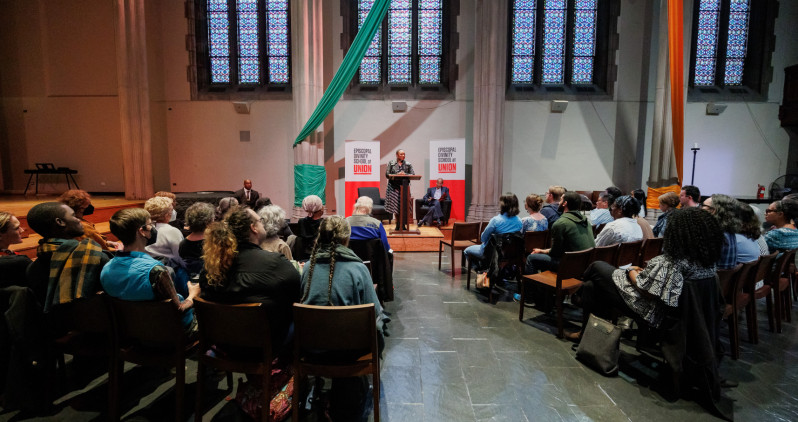Episcopal Divinity School (EDS) is dedicated to nurturing moral leadership through theological education, spiritual formation, and community transformation. EDS remains committed to its mission of dismantling racism and advancing social justice.
Episcopal Divinity School (EDS) is dedicated to nurturing moral leadership through theological education, spiritual formation, and community transformation. EDS remains committed to its mission of dismantling racism and advancing social justice.
The roots of Episcopal Divinity School can be traced back to the merger of Philadelphia Divinity School (1857) and Episcopal Theological School (1867), both renowned for their progressive teaching approaches and innovative pedagogy.
Throughout its history, EDS has been at the forefront of theological responses to a changing world and church. In the 1870s, the school embraced new approaches to biblical interpretation and ethical discourse, paving the way for the admission of African American students and ordained ministers. In subsequent decades, EDS continued its progressive stance by empowering students to shape their own curriculum and course of study, admitting women students in the 1950s, and actively participating in civil rights movements.
In the 1980s and 1990s, EDS played a pioneering role in developing fields such as Feminist Liberation theologies and Anglican Global and Ecumenical Studies. The school also championed the inclusion of women and LGBT+ individuals as students and clergy in the Episcopal Church. In the early 21st century, EDS furthered its commitment to social justice by working on environmental justice and emphasizing the importance of diversity in matters of faith.

In Spring 2017, EDS affiliated with Union Theological Seminary, creating EDS at Union. This collaboration allowed EDS to continue providing Episcopal theological education within an accredited seminary while upholding its longstanding mission. In March 2023, Episcopal Divinity School and Union Theological Seminary decided jointly to end their formal affiliation. UTS will maintain its focus on extensive ecumenical degree programs, while EDS will expand beyond the traditional seminary model.
EDS remains committed to its bold and inclusive vision of social justice. The school aims to equip future leaders in the Episcopal Church with the necessary skills and mindset to lead their communities in an ever-changing world. EDS strives to meet the growing demand for Episcopal theological education and ensure broader access to innovative programs. It will strengthen partnerships, provide theological education for lay and clergy leaders, and foster meaningful conversations on Christianity and social justice. Join in EDS’ journey today.